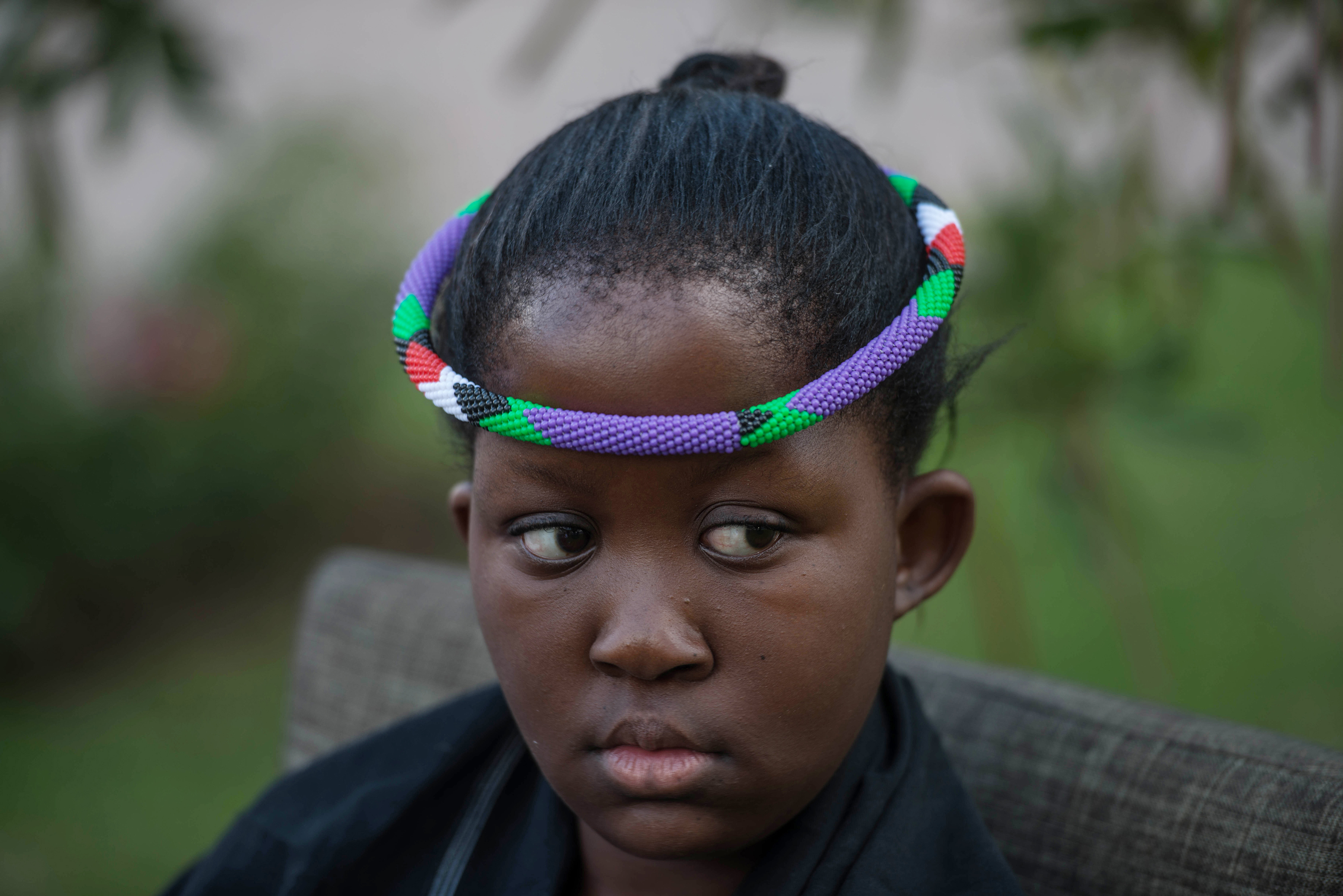Rulers of the Sky: The Rain Queens of Balobedu

Happy Black History Month! For each of the 28 days of February, we at The Mary Sue will have a post about a black woman you should know about—some you may have heard of, some a little bit more obscure, and some fictional who still deserve a lot of love.

Masalanabo Modjadji, 12, South Africa’s only female traditional ruler, with claims of mystical rainmaking powers. (Photo credit: MUJAHID SAFODIEN/AFP/Getty Images)
Day Eleven: The Rain Queens of Balobedu
In addition to highlighting and showcasing things affecting black women in the diaspora, I wanted to also expose people to the broadness of African blackness. Black Panther is coming out this week, and it will hugely broaden the American vision of what Africa and Africanness can be. So in honor of that, I wanted to talk about the tribe of women who inspired the creation of Marvel’s Storm: the Rain Queens of Balobedu.
Also known as Modjadji, the Rain Queen is the hereditary queen of the Balobedu tribe, a people of the Limpopo Province of South Africa. The succession to the position of Rain Queen is matrilineal, so the eldest daughter of the reigning Queen is the heir, and males are not entitled to inherit the throne at all. The Rain Queen is believed to have special powers, including the ability to control the clouds and rainfall.
It is that mythology that inspired The Marvel comics character Storm. She is a fictional descendant of the dynasty that produces the Rain Queens through the line of the sorceress supreme, Ayesha. Ayesha is the name of the character from H. Rider Haggard’s novel, She: A History of Adventure, who was said to have been inspired by the second Rain Queen, Masalanabo Modjadji.
Much like the way the Dora Milaje in the Black Panther universe are sent by the royal council of multiple tribes, with the Rain Queen, her official mates are chosen by a council so that all of her children will be of royal blood. However, the Rain Queens are not expected to remain in monogamous relationships with these partners, and largely the custom of “bride giving” is more about diplomacy than anything else.
Because of the folklore and legends surrounding The Rain Queen, she is a prominent figure in South Africa. Different tribes respect the position and power of the Rain Queen to the point where it has been said that even Shaka Zulu sent some of his top emissaries to ask her for her blessings. The fifth Rain Queen, Mokope Modjadji, also maintained a friendly relationship with Nelson Mandela.
The Rain Queen and the royal institution have become a significant tourist attraction contributing to the South African economy. The Rain Queen was offered an annual government civil list with a stipend given to her, in order to help defray the costs of preserving the cycad trees found in the Rain Queen’s gardens.
I was drawn to the mythology around the Rain Queen because growing up, people would talk about African tribes as being mostly patriarchal in nature, but not only do powerful matriarchies exist in Africa, but their stories have traveled the globe—where they’ve inspired queens both in the real world and in fiction.
(image: MUJAHID SAFODIEN/AFP/Getty Images)
Want more stories like this? Become a subscriber and support the site!
—The Mary Sue has a strict comment policy that forbids, but is not limited to, personal insults toward anyone, hate speech, and trolling.—
Have a tip we should know? [email protected]
